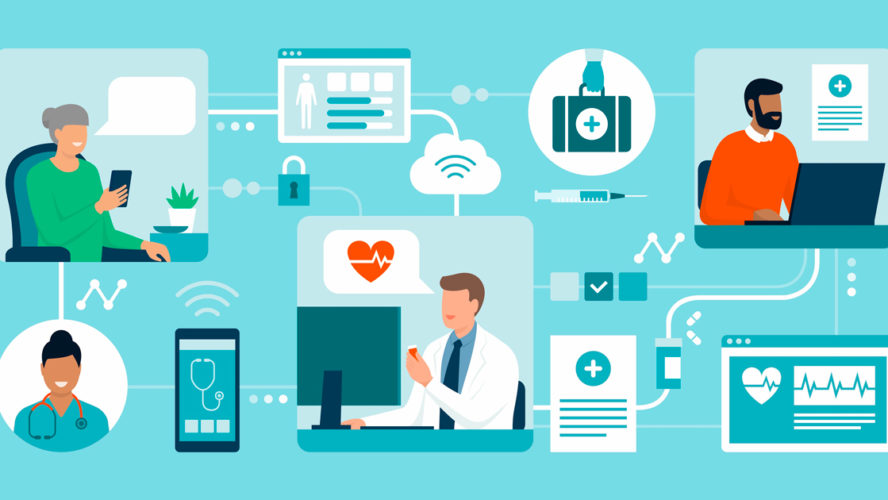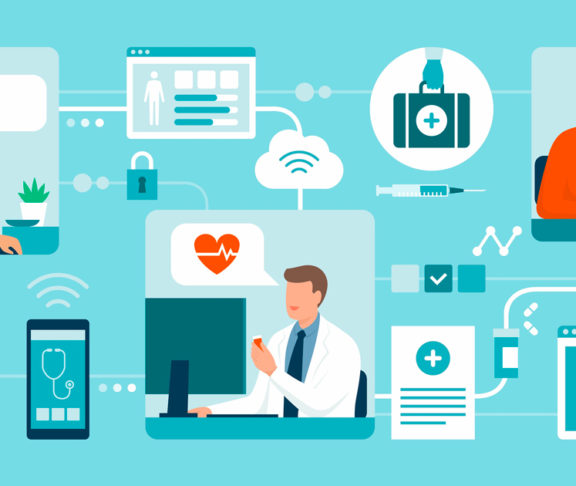
Jenny Thomas
Programme Director, DigitalHealth.London
Digital tools and artificial intelligence (AI) are key in combatting workforce challenges in the healthcare system.
In October, we started a five-week conversation with NHS and social care staff, industry, patients and academics to hear about their learnings from the last five years and the opportunities for the next five years in digital health.
AI tools to support healthcare needs
The final report, Driving digital: Insights and foresights from the health and care ecosystem identified five key opportunities. One of these was combatting workforce challenges exacerbated by COVID-19, through equipping staff with new models of working, digital knowledge and AI tools.
This aligns with a recent trend of new training opportunities for healthcare professionals on using digital tools. Health Education England, for example, will launch a self-assessment tool in Spring 2022 for all NHS staff to assess their own digital skills and be directed to relevant e-learning.
AI was highlighted as a key supporter of the workforce and many believe that AI and robotic process automation (RPA) will soon be used to replace repetitive tasks, support clinical decisions and triage patients through chatbots, thereby freeing up staff time for other vital tasks.
From automating healthcare to supporting with decision making – the opportunities of AI for the workforce are vast.
Digital health companies lead the way
The DigitalHealth.London Accelerator is a 12-month programme for digital health companies that have products or services with high potential to meet NHS and social care challenges. Companies making up cohort six of the programme, illustrate the permeation of AI into the healthcare industry. Ufonia for example, has built an AI-enabled autonomous clinical assistant which can telephone patients and conduct a routine clinical conversation, such as a follow-up after cataract surgery. Initial studies have indicated that it can reduce routine clinician activity by over two-thirds. Healthtech, another cohort six company, automates administrative tasks in the NHS so staff can instead focus on care. They are starting by automating the nation’s 190,000 monthly patient registrations.
From automating healthcare to supporting with decision making – the opportunities of AI for the workforce are vast and the next five years will be pivotal in cementing the place for automation in healthcare.
To find out the other four key opportunities in digital health identified in the report, visit DigitalHealth.London’s website.


